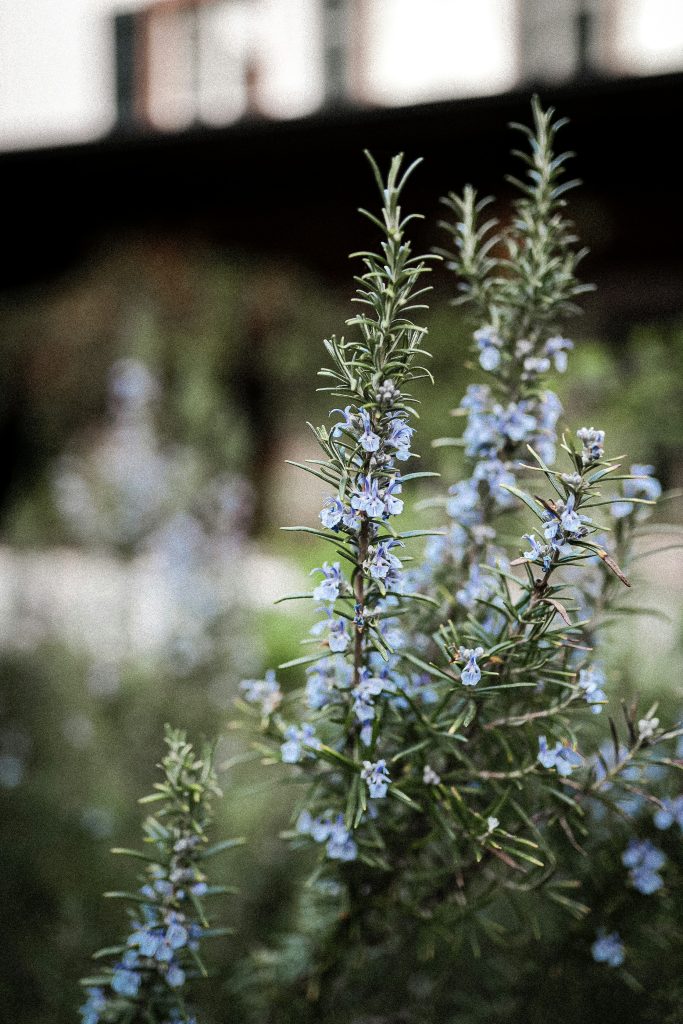Some people live longer than others. While we may not be sure why exactly any given person lived to the age that they did, there are certain habits that seem to be common in at least some groups of long-lived people, including the consumption of nutrient-rich foods, exercise, gardening, strong social relationships, and some sort of good economic planning.
Disclaimer: I am not a medical professional, and nothing in this post is medical advice. Correlation does not equal causation, and just because someone lives to be 100 or older does not mean that everything they did in their life was healthy. And even if a peer-reviewed journal says something the research might still only be preliminary or applicable just to animals. So please consult a qualified medical professional if you need medical advice.
Potent Rosemary of Acciaroli

Corina Rainer on Unsplash
Acciaroli, Italy, is one place in the world with an unusually large concentration of people living to 90, 100, and even older. Precise numbers vary depending on the website you look at. According to the Seattle Times and the New York Times, “Of the area’s inhabitants, about 1 in 60 is 90 or older, according to the researchers.” According to the San Diego Union-Tribune, roughly 300 of the 2,000 inhabitants are 100 or older. According to NPR, roughly a third of the inhabitants are over 100 years old. The Mirror gives a more conservative estimate of 300 people aged 90 or older, with 116 of those being age 100 or older. Personally, I find the more conservative estimates to be more believable, but I want to give you the chance to form your own opinion. In any case, there are quite a number of people in Acciaroli who are impressively old.
The Seattle Times and other websites speculate that the local variety of rosemary — said to smell ten times stronger than normal rosemary — may be part of the reason why the people of Acciaroli enjoy such long lifespans. According to Dr. Alan Maisel, “They use rosemary on everything they cook.”
It’s a plausible theory. According to an article published in Fitoerapia, a peer-reviewed journal, “Rosmarinus officinalis L. leaf as part of a diet and medication can be a valuable proposal for the prevention and treatment of dementia.” The article discusses rat brains, so it’s unclear whether this is applicable to human brains. However, the Shakespeare play Hamlet includes a line that reads, “There’s rosemary, that’s for remembrance,” so correctly or incorrectly, it seems that rosemary has been associated with good memory for a long time. Furthermore, a small study of Japanese men indicates that “continuous intake [1 gram daily dissolved in hot or cold water for 4 weeks] of rosemary extracts led to improvements in vigor, sleep quality, and cognitive function.” Additionally, a small study of university students concluded that “Rosemary as a traditional herb could be used to boost prospective and retrospective memory, reduce anxiety and depression, and improve sleep quality in university students.”
Rosemary may also have anticancer properties. According to an article in the peer-reviewed journal Nutrients, “The anticancer activity of rosemary and its main derivatives has been correlated with diverse actions, including antioxidant effects, antiangiogenic properties, epigenetic action, the regulation of immune response and anti-inflammatory response, alteration of hormone signaling, modification of specific metabolic pathways and increased expression of onco-suppressor genes.” Please note that rosemary has not been approved by the FDA except as a food, and if you have cancer or suspect you have cancer, you should probably consult a doctor rather than relying on experimental potential treatments in medical journals. Also remember that scientific journals might find anticancer properties in rosemary and other herbs even if those properties are very mild and/or only work in animals and not humans.
Even if we optimistically assume that the rosemary of Acciaroli is an amazing herb with amazing health benefits, it would be reductionist to attribute the longevity of so many residents of Acciaroli solely to the rosemary. Other possible factors include close family ties, locally sourced food, gardening, maintaining an active lifestyle into old age, exceptionally good microcirculation, abundant sunshine and clean air. Family ties in Acciaroli are apparently strong enough that the area doesn’t even have an old people’s home.
Beans, Fruit, Vegetables, and Nixtamalized Corn in Nicoya, Costa Rica
Nicoya, Costa Rica is another part of the world where people tend to live an unusually long time, and was investigated by Dan Buettner. Nicoyans eat significant qualities of beans and nixtamalized corn, aka maiz nixquezado. Nixtamalization is when dried corn is cooked and steeped in an alkaline solution, usually water and food grade calcium hydroxide (aka lime). Other foods common in Nicoya include lemon, orange, banana, and squash. One garden Buettner visited in Nicoya also included the fruits marañon and anona.
According to the abstract of a peer-reviewed article published in ESPEN, “the consumption of beans is associated with a decrease in CVD [cardiovascular disease] risk factors.” A meta-analysis published in Public Health Nutrition suggest that legumes in general may reduce CVD risk factors. Some studies suggest that some types of beans, including cocoa beans and coffee beans, may inhibit the development of Parkinson’s disease, but research in humans is very limited and it is unclear if results from animal studies are applicable to humans.
